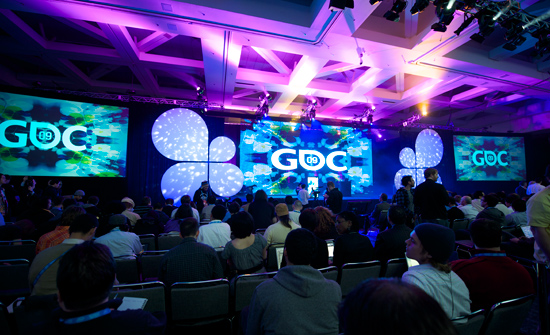The Game Developers Conference takes place this week in San Francisco, and thousands of attendees are trying out new technologies and learning new things from a variety of panels and sessions.
Even though it’s only the first day, three major themes already rise to the surface.
Virtual Reality Rules All
Companies in attendance will bring the latest in up-and-coming technology to the show floor. The big focus this year will be on virtual reality, as both the HTC Vive and Oculus VR will soon launch. The HTC Vive in particular is really picking up with the debut of the Star Wars Experience, along with 30 other games being showcased.
Additionally, Sony announced that the PlayStation VR will launch in October and sell for $400. The headset will come with a special virtual reality version of Star Wars Battlefront, and 50 PSVR games will launch by the end of the year. Other games with planned PSVR support include Uncharted 4: A Thief’s End, The Last Guardian, and Horizon: Zero Dawn.
Razer also announced an expansion to its Open Source Virtual Reality (OSVR) development platform so that it includes CryEngine. Additionally, CryEngine announced a new version with a “pay what you want” model to it, to encourage more developers to use it. Meanwhile, competitors like Unreal Engine 4 are aggressively pushing to continue as the premiere development suite for games and VR experiences.
ESports Continues To Blow Up
Given how the week started with the possibility that Rocket League could become a cross-network game, there’s potential for eSports to grow much further than it already has, which makes this year’s eSports Summit especially relevant. Noteworthy panels include a presentation by Dustin Beck from Riot Games, who will detail the lessons learned in promoting League of Legends as an eSport. Additionally, Kristian Segerstrale from Super Evil Megacorp will talk about how Vainglory broke ground as a mobile game eSport.
Engaging With Diverse Audiences
This year’s GDC will have plenty of marketing and business panels, including a presentation from EEDAR’s head of insights, Patrick Walker, who discusses the expanding game universe, and how “gamer” has come to mean more than playing games.
On the mobile front, King Digital discusses best practices for developing engaging premium content for free-to-play games, while Rovio talks about the lessons learned from launching Angry Birds 2. Coffee Stain Studios explains how Goat Simulator became a success across PC, mobile, and consoles using only social media promotion. Furthermore, Chivalry developer, Torn Banner Studios, will talk about how cross-promotional partnerships with other games help grow the medieval combat game’s audience.

